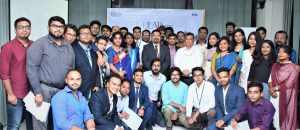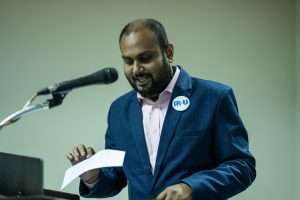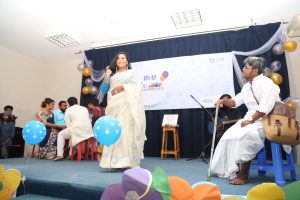University is a place to learn, become knowledgeable, get certified to explore and experience the competitive world for a successful future. It is a heart of knowledge that teaches us to choose dreams, set life goals, melting with new cultures, know own potentials, become confident, witness the appreciations by faculty members, make new friends, dealing with loss, embrace changes, become more confident to increase future earning potentials by getting into healthy competition with dearest friends without getting into fights. Not only that, but the university also trains us to feel that urge to improve our soft and hard skills to become leaders in the real world.
Developing skills are the excellent progression opportunities for youth who might have trouble entering and staying in the labor force. There are two types of skills that include hard and soft skills that are necessary to perform successfully in a professional career.
Public relations is a universal skill that considers as a major qualification of an employee in every professional sector. Business, health, teachings, advertisement and so other sectors that require public relations in this digital era.
PR4U, an apprenticeship programme of ULAB-MSJ, is a Public Relations platform for ULABians to improve, develop and practice advanced elements of public relations that includes communication strategies, successful event managements, conducting campaigns, managing press & media, crisis management, managing press events & liaison with media key persons, powerful presentations, public speaking skills and so on. It is a platform that will introduce students to be competent, competitive, and skilled to face the real world and deal-professional challenges with a positive attitude, confidence, and professionalism.
Mission: To develop professional public relations skill and encourage a competitive career path.
Vision: Establishing PR4U as a resourceful and trustworthy platform for PR Industry employers.
Objective: PR4U Apprenticeship programme encourages students to work hard by experiencing and learning skills that lead to a successful career. It will help to improve specific technical knowledge and training as well as soft skills, i.e. personality traits, such as workplace etiquette, leadership, communication, time management, etc.
Programme Learning Outcomes (PLOs): The apprenticeship programme initiated to encourage students to learn real-life experience to develop professional skills. The major outcomes that usually this programme expects from the students are given below.
- PLO1: Develop an understanding of the public relations industry
- PLO2: Develop event management skills
- PLO3: Development organizational capabilities
- PLO4: Ability to work as a team
- PLO5: Ability to be adaptive for different organizations concerning brand identity and represent accordingly.
- PLO6: Ability to give develop communication and public speaking skills.
- PLO7: Ability to manage PR crisis and campaigns
- PLO8: Ability to solve problems efficiently under different circumstances.
CURRICULUM:
Semester 1: General membership, attending regular meetings & workshops, volunteering to the event.
Semester 2: General membership, attending regular meetings & workshops, volunteering to the event, support executive members for implementing tasks during events & programmes.
Semester 3 onwards: General membership, division into specific departments depending on their expertise, interest.
Semester 4, 5, and 6: Opportunity to become an executive body member depending on performance.
Semester 7: Apprentice can continue in a particular team through the semesters if s/he has a focus or goal in a particular sector.
LEARNING STRATEGY:
Semester 1: Attending workshops and events organized by the programme
Semester 2: Points achieved through being members of specialized teams
Semester 3 onwards: Points achieved through writing press release of events, organizing, hosting, volunteering, assisting, and many more.
There are six departments in the organization that includes: Event Management, Human Resources, Social Media, Media Relations, Creative Development, and Strategic Planning. The members are first rotated across these departments upon joining the organization. Later, depending upon their interests, they are divided within these departments. Each department has a head and an assistant who lead the teams.



